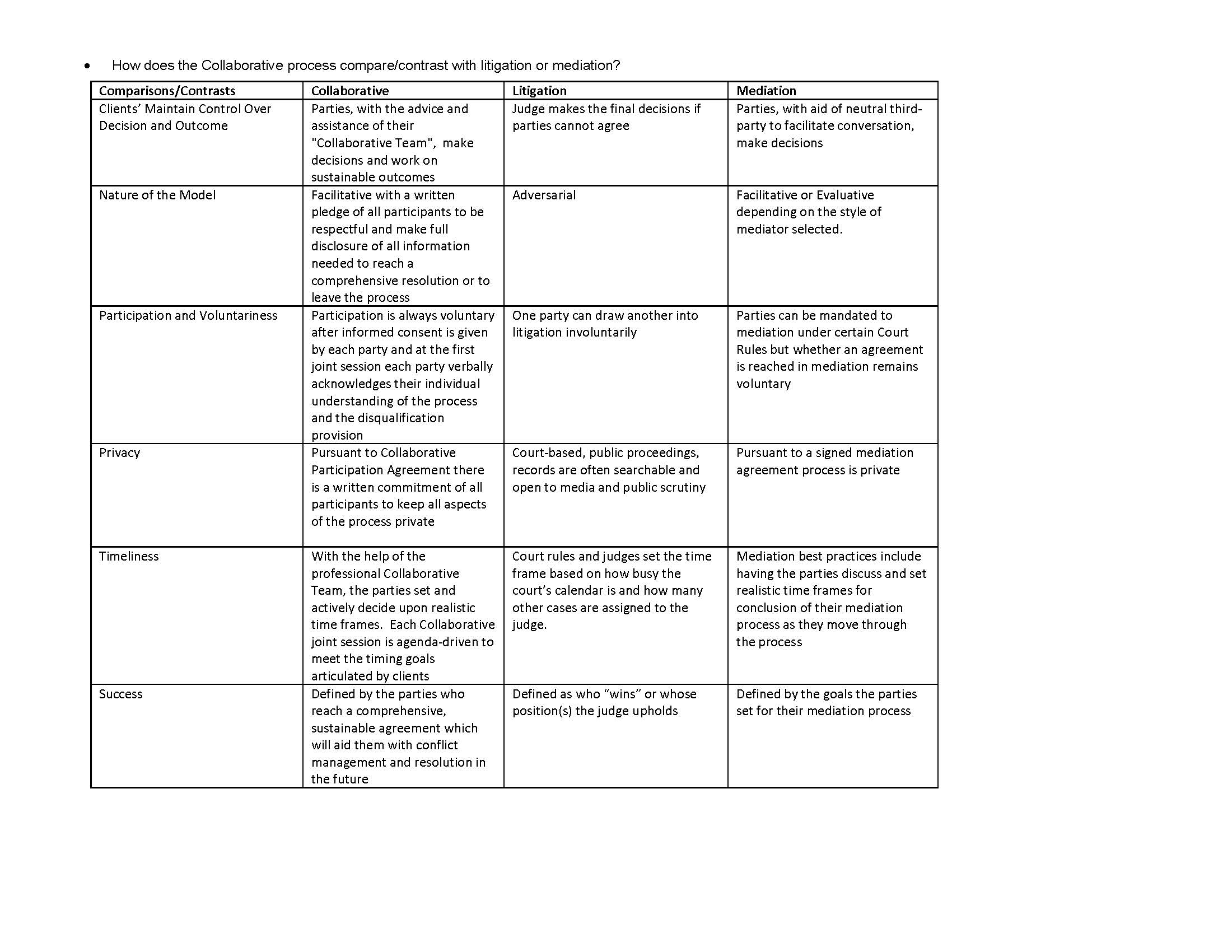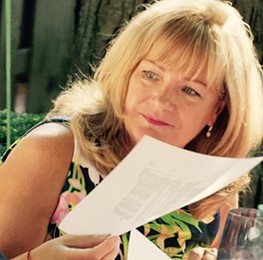We periodically feature our members (Fellows) so that you can learn more about them, Collaborative divorce, and our organization.
Name: Sandra Crawford
Profession: Attorney, Mediator and Educator
Title: JD
Where do you practice Collaborative Divorce (i.e. in what geographical area)?
I practice virtually which allows me to practice statewide around Illinois, where I am licensed as a lawyer. Although I am based in Cook County, I have participated in Collaborative matters as far west as DeKalb and Winnebago counties. I also worked with clients who reside outside the U.S. or who are foreign nationals married to U.S. citizens. Given the global pandemic there has been a greater need for separating and divorcing couples to access family law legal services via online platforms (Zoom, Skype, Facetime). This allows the practitioners to practice wherever they are licensed.
What drew you to become a Collaborative Divorce Professional?
I was drawn to becoming a Collaborative Divorce Professional for a couple of reasons. By 2002, when the first Collaborative Training came to Illinois, I had already been practicing both mediation and litigation for over 10 years. When I first heard the Collaborative Process described, it occurred to me that that consensual model of dispute resolution would allow me to marry (no pun intended) my interest based negotiation skills learned in mediation with my commitment that divorce be a less polarizing for couples then it often is in litigation. I was already connected with several lawyer-mediators in my professional community who also wanted to transition from doing family law litigation and wanted to grow an organization that would educate the public and the profession about Collaborative Process – that organization was the Collaborative Law Institute of Illinois, now Collaborative Divorce Illinois. I served on the Board of CLII for many years and served as its President in 2010. In addition I have taught Collaborative Process to other professionals and now teach mediation to professionals who wish to be become Collaborative Practitioners.
What tips do you have for couples considering divorce?
Three tips I give separating and divorcing couples: considering divorce:
1. Professional advice and education about divorce process options (“kitchen table,” mediation, Collaborative Process, etc.) are critical before starting out – your family and friends, if not trained professionals, are not the best source of divorce advice or education. Even if they are trained, they may not have the requisite objectivity to help you with your divorce process.
2. Be flexible and curious – especially where there are children involved. This too will pass and when it does and you don’t want to end in entrenched positions leading to ongoing family chaos. You want to end with a viable and sustainable plan that is future focused.
3. Life is about communication – a good life is about good communication. So, use the divorce process to work on and improve, with the help of a professional team, how you communicate with the soon-to-be-former-spouse, your children, your family, your professionals.
How does the Collaborative process compare/contrast with litigation or mediation?
 What makes Collaborative Divorce a better choice than litigation?
What makes Collaborative Divorce a better choice than litigation?
My observations as to what makes Collaborative Divorce a better choice than litigation have been honed over the past 18 years of practicing in both arenas simultaneously. Because litigation is an adversarial “winner takes all” process, often the parties’ marital conflict continues to be played out before the court and through their lawyers, under the guise of “zealous representation.” As stated above in the comparison chart, litigation is a public proceeding and the judgment is made by a judge using his/her own values and beliefs and applying the law as he or she understands it. Whereas, Collaborative is a better choice because it is a private and self-determinative process. The parties, after being educated and confirming their understanding of the law with their Collaborative Lawyers, are free to make reasonable and uniquely tailored plans for their children, their finances and their futures. In Collaborative Divorce the lawyers and other members of the Collaborative Team (mental health professionals and financial professionals) help the clients (with the clients’ written permission, i.e. the Collaborative Participation Agreement), to stay out of conflict and remain future-focused, topic-specific, and time-limited in their work to negotiate and get the separation and divorce agreements finalized. Once the agreements are finalized in Collaborative Divorce they are then presented to a judge for review and entry by consent. In over 18 years of presenting Collaborative Martial Settlement Agreements to courts in Illinois, I have not had a single one questioned by a judge. On the contrary, judges are generally very receptive to having divorcing couples make reasonable decisions for themselves based on their own families values and beliefs.
Sandra Crawford
312-726-8766

